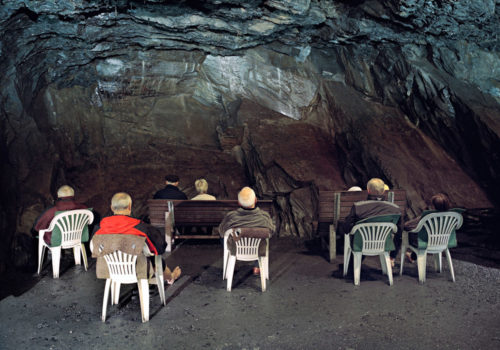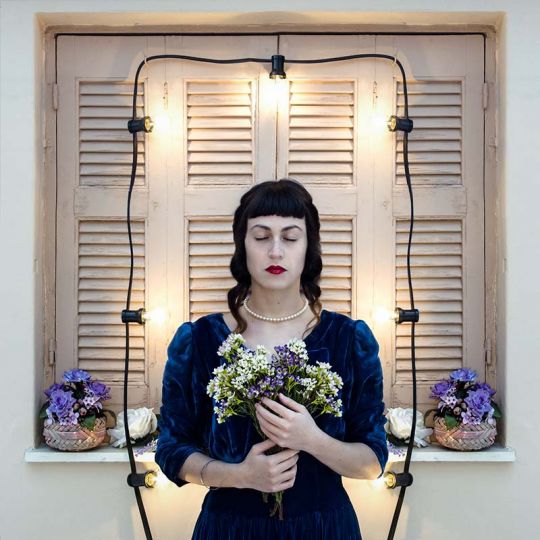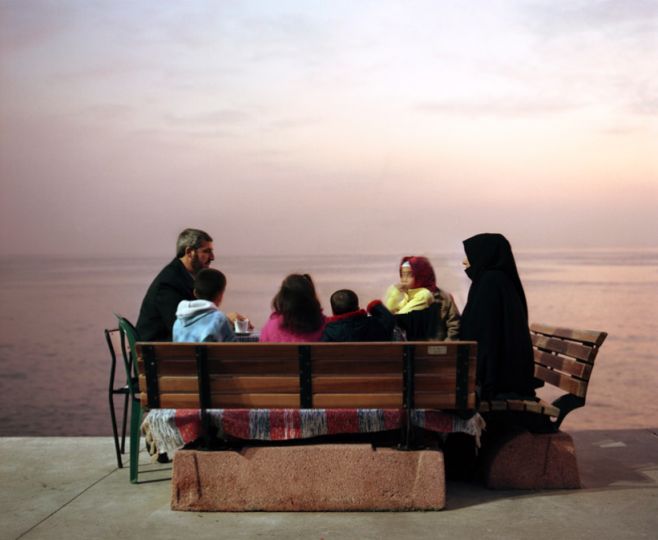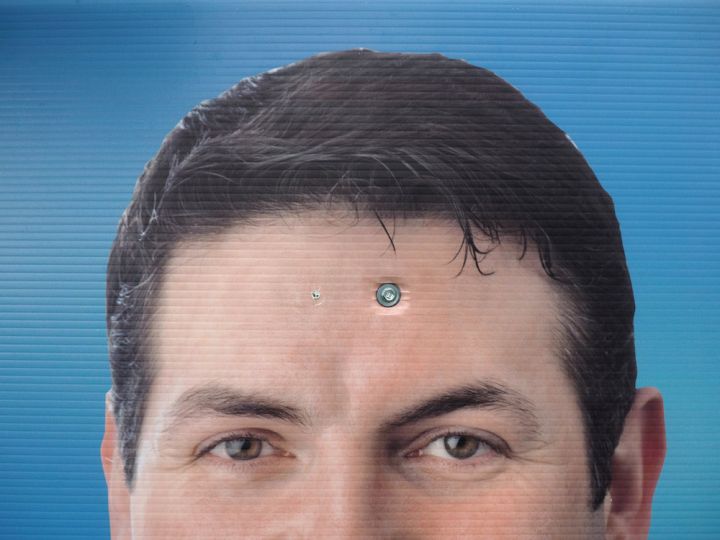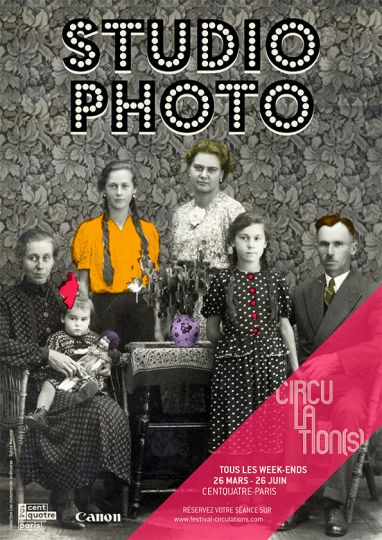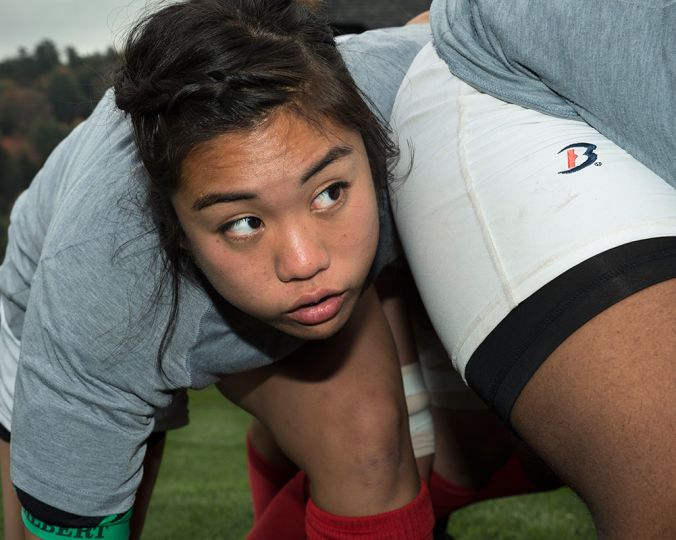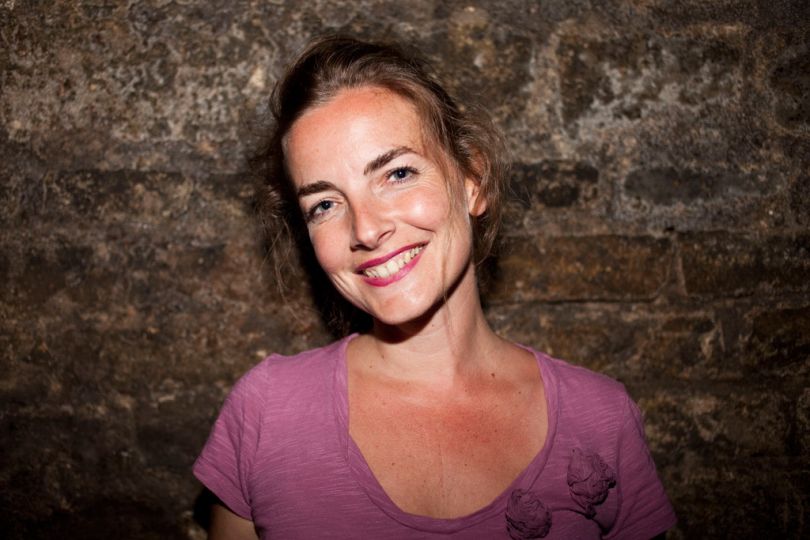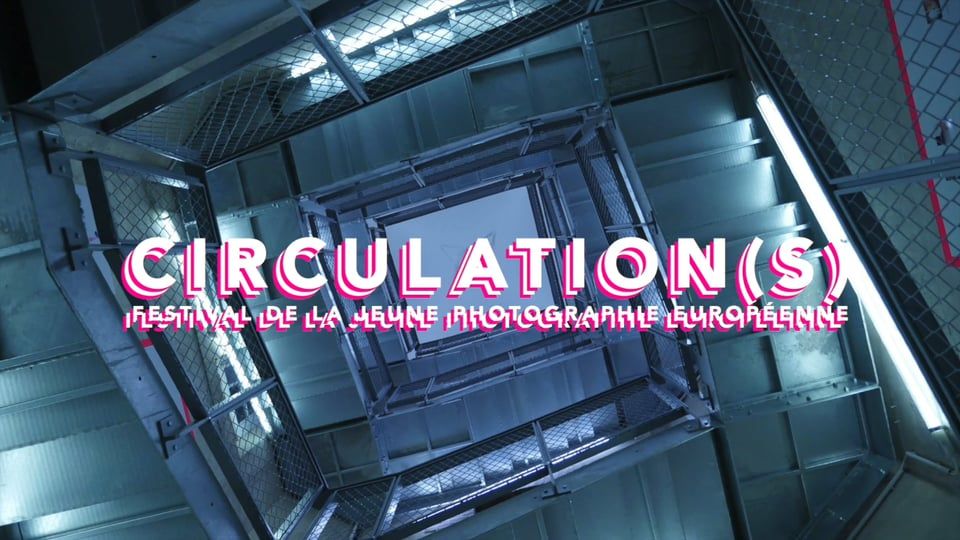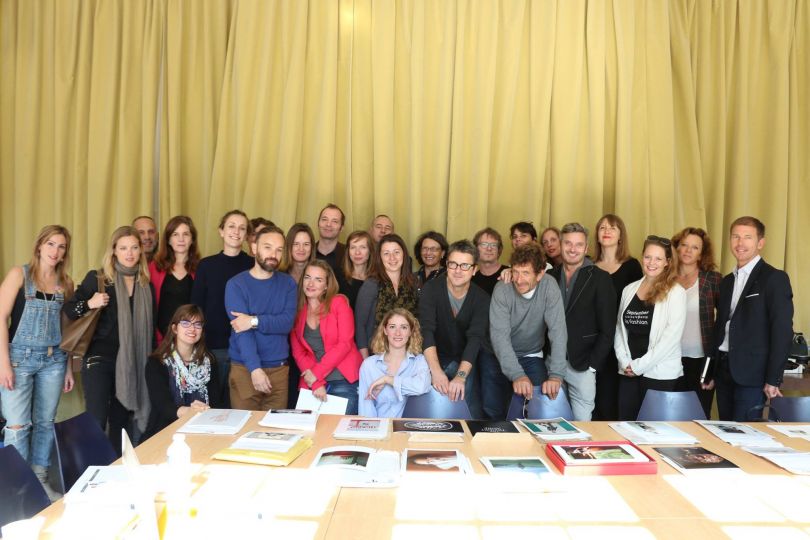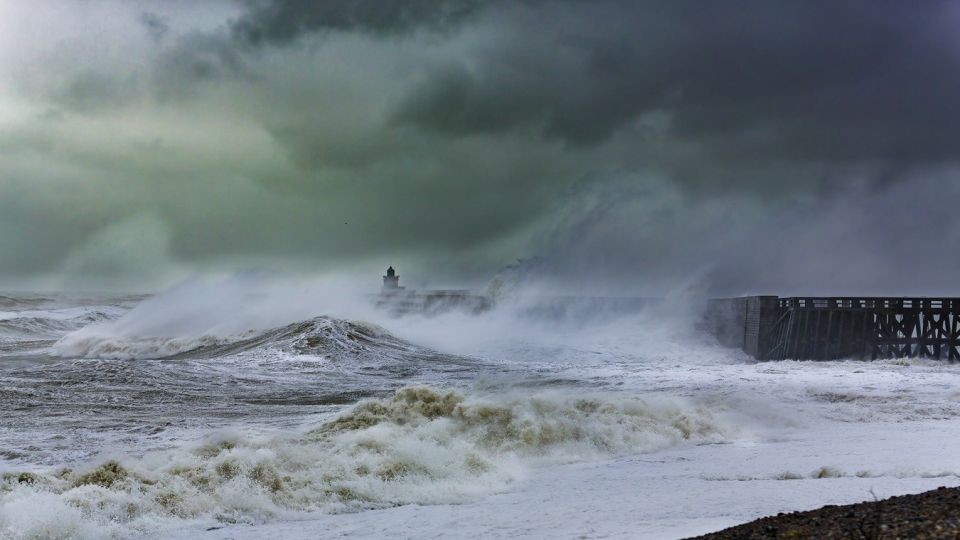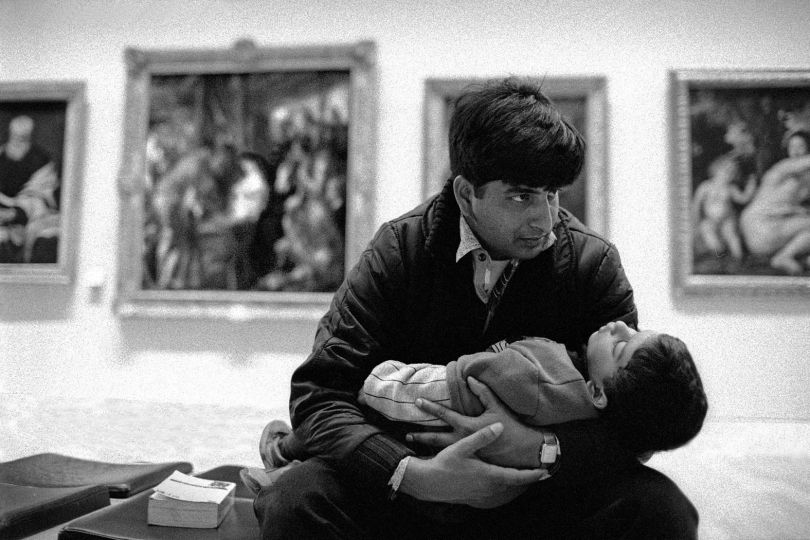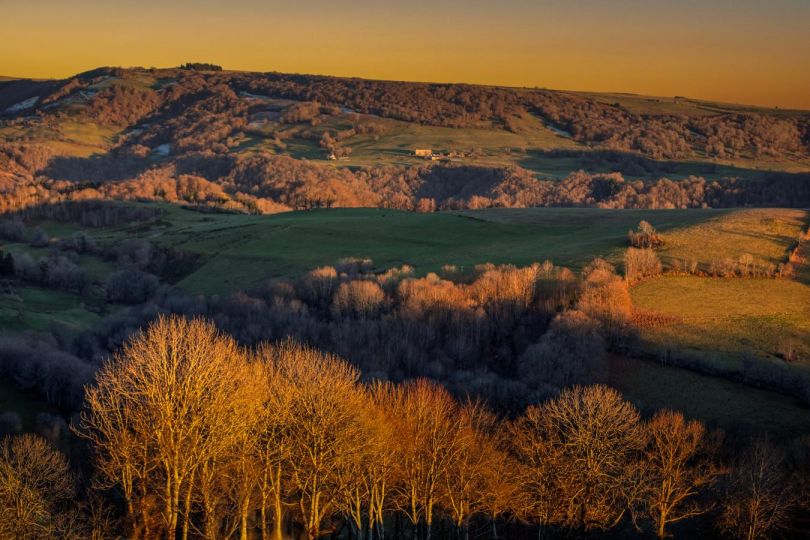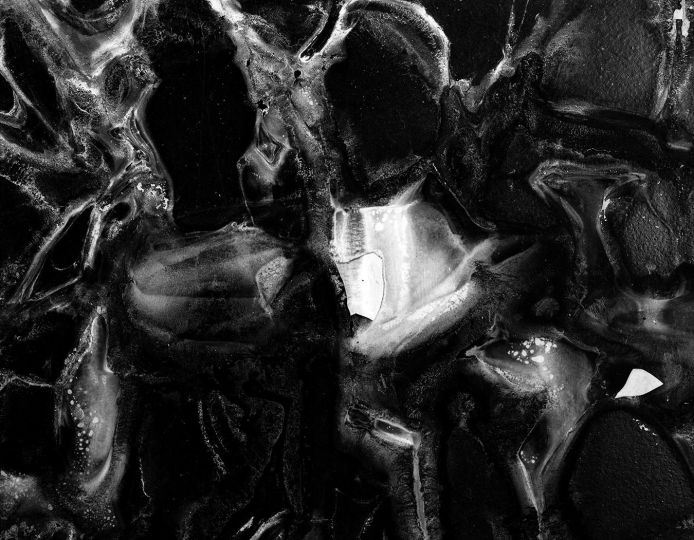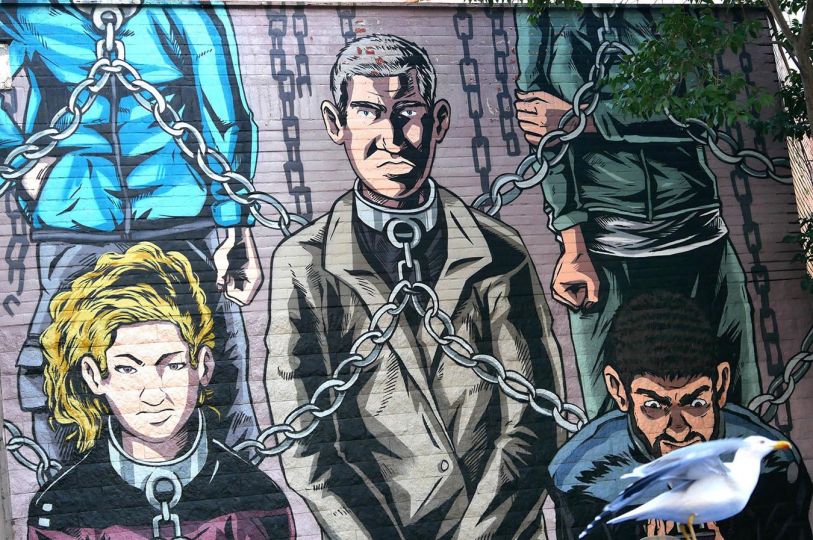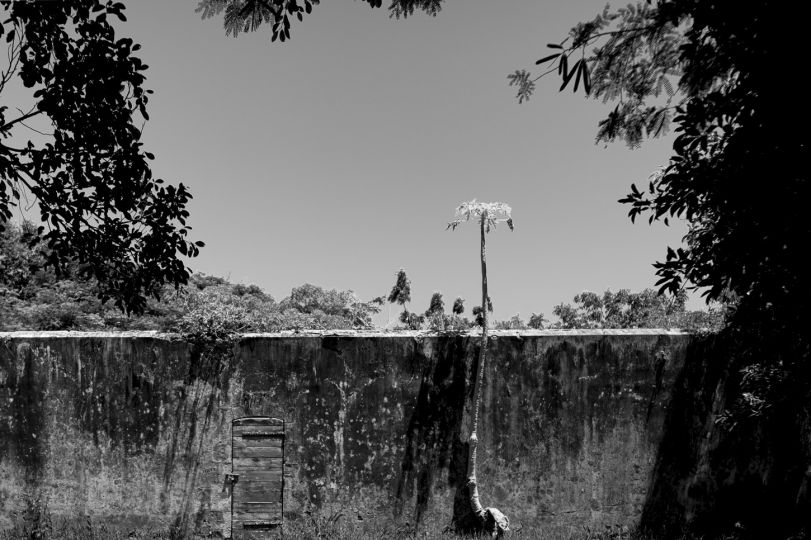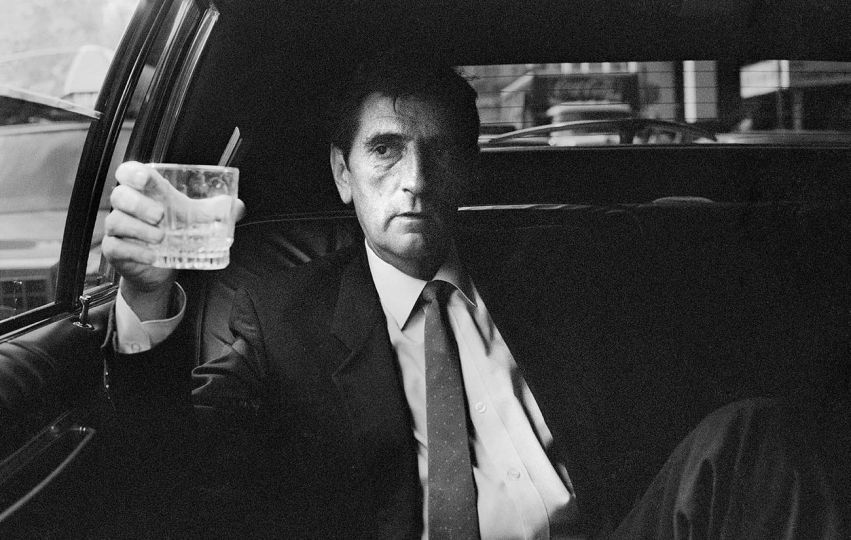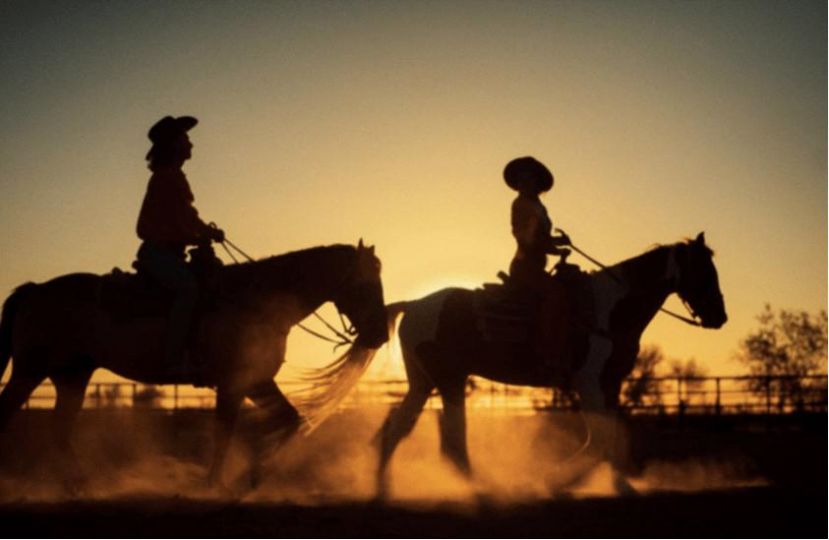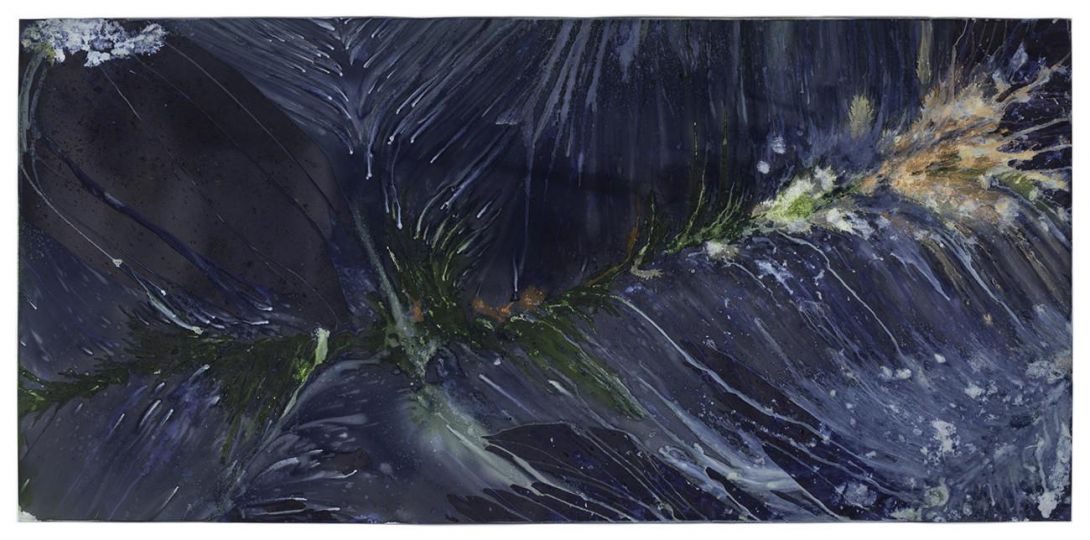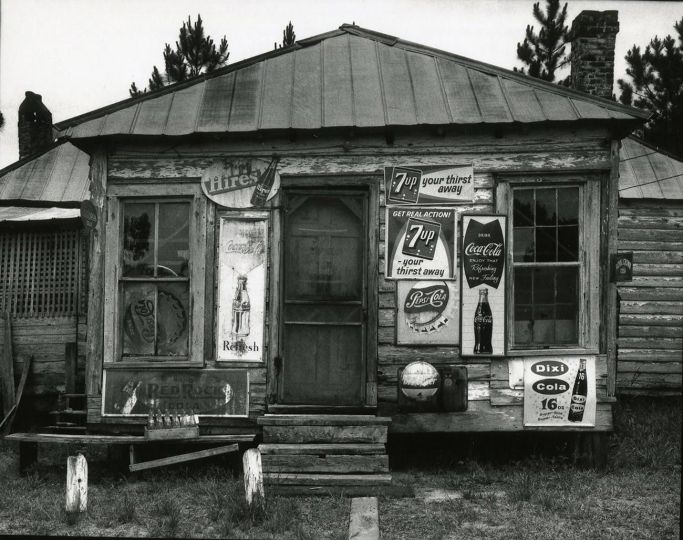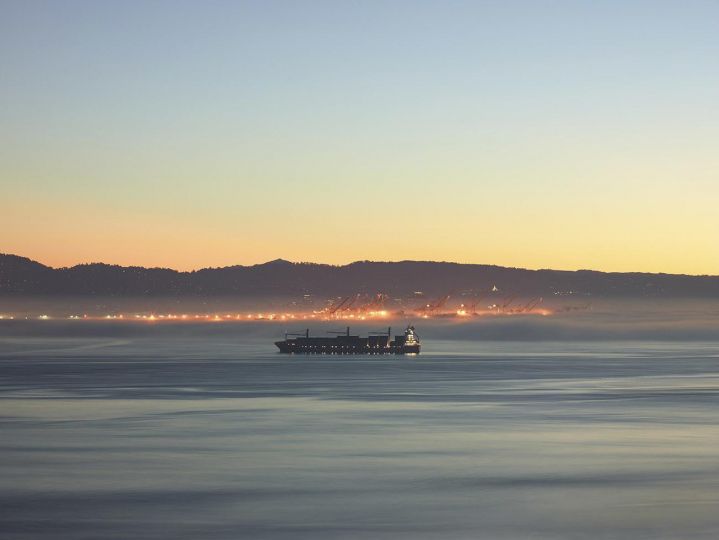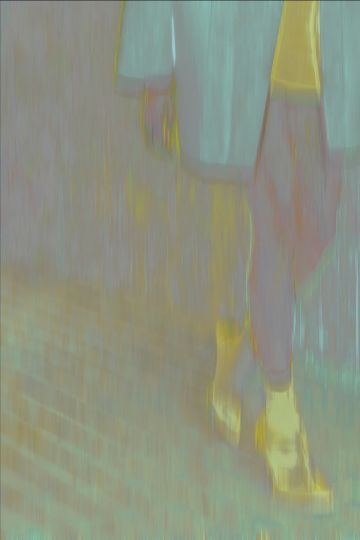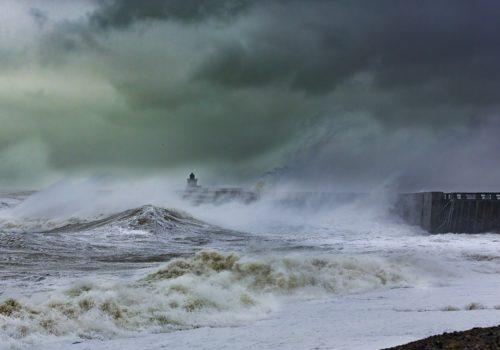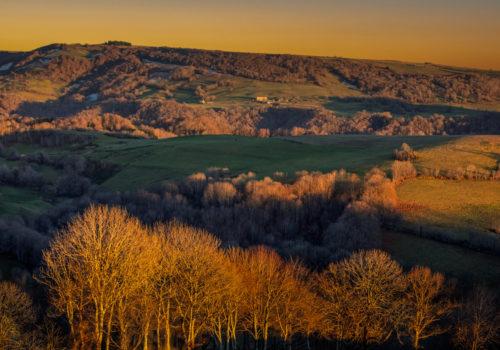Here is the interview of Alexander Krack by Sophie Bernard in the context of our coverage of the festival Circulation(s). « The Treatment » is a series about Germans attending spas both for health benefits and for leisure. Many cities offer specialized centers for the treatment of chronic diseases such as asthma or rheumatism. Alexander explored this microcosm and searched for a unifying aesthetic within the numerous spa towns that he visited in Germany. In the process of his work,summer memories from his childhood , spent in mountain resorts in an attempt to treat chronic bronchitis, resurfaced. They associate images of the beauty of nature, strange medical machines and elderly people in white coats. The aesthetic and emotional ambivalence of these memories is presents in the often surreal setting of his photography.
Why did you become a photographer ?
There was never a point where I consciously decided to become a photographer. I am not even sure if I would call myself that. To me it has always been about understanding the world a little bit more and photography is one way for me to do that.
Have you ever published a book ? had an exhibition ? had an award ?
I self-published a book about my graduation project in an edition of 100. I had the chance to exhibit my last project with many festivals such as Voies-Off Arles, Fotobiennal Malmö, C.A.R. Essen and others. I am also very happy that my work received the Grand Prize at the International Photofestival Leiden in 2015 and won the third prize at the Aenne-Biermann-Award in 2015.
How did you find Circulation (s) ? Why did you choose to be candidate ?
I heard about the Circulations festival at the 2015 festival in Arles and was excited about the possible opportunity to have my work shown in an exciting city like Paris. I was also impressed by the list of previous participants, it was a clear decision for me to apply for the Circulations Festival.
What do you expect of this festival ?
I look forward to have my work visible in a city like Paris and especially at such an interesting venue where the mix with of works of the different participants may lead to inspiring conversations and contacts.
Do you make a living from photography ? (what kind of photography ? is it enough ? is it easy ?)
As I graduated a little more than a year ago, this question might be a little premature. After working in different fields before studying photography, I decided to work at it as I felt a desire to express myself in this way. The most important aspect for me, therefore, is the creative freedom that I feel when I photograph. I try to be financially independent to allow myself that freedom. If that sometimes means doing something else than photography I am willing to do that.
Could you say a few word about the serie you’ll present à Circulation (s) : What is it about ? Why did you decide to it ? Can you describe how you study or prepare a subject before shootting ?
While doing research for another project I coincidentally stayed in a small motel in a German spa town. As I was walking around in the “Kurgarten”, the official park area that every spa town has, I came across this painting behind a storefront that was just lit up by the evening sun.
I took a photo of it and immediately felt that there was more out there that stirred my interest. I guess I liked the idea that I had certain associations with spa towns . That painting behind the glass expressed that perfectly for me.
It was the starting point that inspired my interest in the aesthetics and the microcosm spa towns.
The preparation was a rather organic development with some research and the necessary correspondence . I had to get the patients consent for many of the photos , of course. Nothing I show is staged but I still had to ask in order to witness and participate in the treatments. During my project I have visited more than 30 spa towns all over Gemany. My approach, however, was never to give the most objective overview of the current state of spa towns in Germany. I saw it as an integrated experience from the start, so I never really tried to seperate what I saw. In my visual journey it was all part of one narrative and an aesthetic cosmos.
Who are your masters (photographers, artists…) and why ?
As a young kid I frequently looked at some photo books my father had in his collection. Most of them were about the New Color Photography in the 70s. People like Stephen Shore, Joel Sternfeld and also William Eggleston. Going back to these memories, I can say that these books changed the way I looked at photographs. Some of these works are certainly still influencing me today. Especially Joel Sternfeld who is one of my favourites.
Do you think that a picture (or photography) can change the world ?
In the scientific field one usually differentiates between a necessary and a sufficient condition. I believe that we need images as a necessary condition for change but it is certainly not a sufficient condition . I believe in the general aesthetic education as part of a moral education of the human mind. That being said, we certainly need good photography that stands out in today’s world of visual overload.
Does photography change the way you see the world ?
I see photography as part of the world and thus do not make this separation. I think photography can be a reminder of how to see the world in different ways but everything is already there.
FESTIVAL
Festival Circulation(s) – Jeune Photographie Européenne
From March 26th to June 26th 2016
CENTQUATRE
5 rue Curial
75019 Paris
France
Closed on Monday
http://www.festival-circulations.com
http://www.alexanderkrack.com

